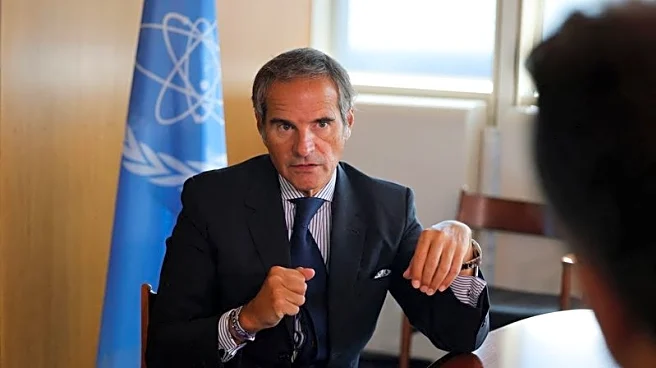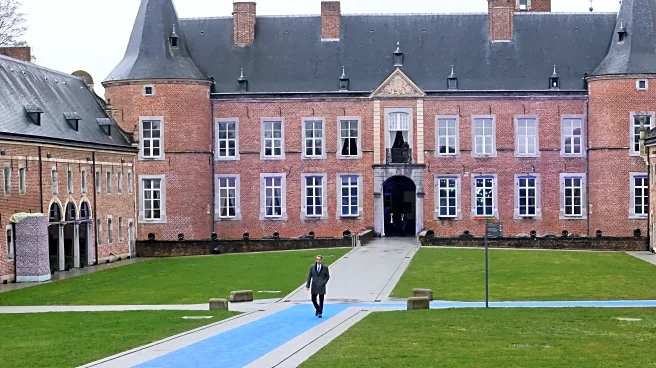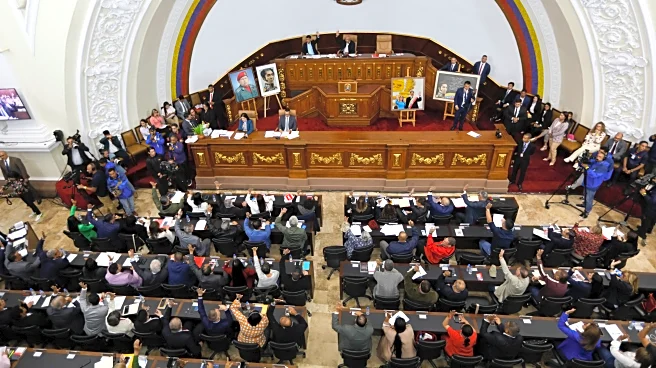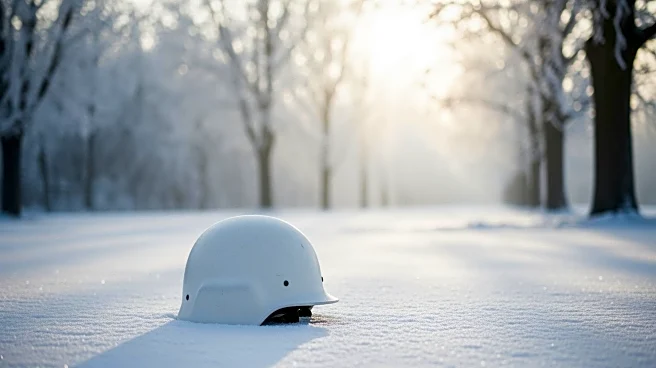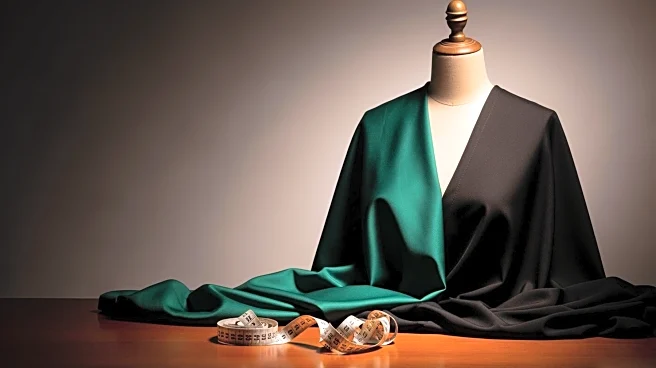By Francois Murphy
VIENNA (Reuters) -The U.N. nuclear watchdog's talks with Iran on how to resume inspections at sites including those Israel and the United States bombed cannot go on for months on end,
its chief told Reuters on Wednesday, pushing for a deal as early as this week.
The International Atomic Energy Agency has had no information from Iran on the status or whereabouts of its stock of highly enriched uranium since Israel launched the first attacks on its enrichment sites on June 13, IAEA chief Rafael Grossi confirmed in an interview.
Tehran has now passed a law suspending cooperation with the IAEA and stipulating any future inspections will need a green light from Iran's Supreme National Security Council. Tehran and the IAEA are now in talks on how inspections can go ahead.
"It's not something that can go on for months on end," Grossi said in an interview at IAEA headquarters in Vienna.
"I certainly hope that we can conclude this process soon. We are trying to have another meeting, perhaps within a few days now, here in Vienna, to conclude this and to start the inspections," he said. "It would be really good if we could have this agreed before next week."
Technically, inspections in Iran have resumed since IAEA inspectors recently carried out a mission at Bushehr, Iran's only operating nuclear power plant, but it is of so little concern from a proliferation perspective that it does not generally feature in quarterly IAEA reports on Iran.
'BY AND LARGE, NUCLEAR MATERIAL STILL THERE'
While Iran's three enrichment sites were badly damaged or destroyed in the Israeli and U.S. bombing campaigns, it is less clear what has happened to Iran's stock of highly enriched uranium - the most sensitive material having been enriched to up to 60%, a short step from the roughly 90% of weapons grade.
Iran had enough material enriched to that level, if enriched further, for six nuclear weapons before the attacks, according to an IAEA yardstick.
"I believe there is a general understanding that by and large, the material is still there. But, of course, it needs to be verified. Some could have been lost," Grossi said when asked about the status of Iran's highly enriched uranium stock.
"We don't have indications that would lead us to believe that there has been major movement of material," he said.
Iran has not updated the IAEA on the status of the stockpile but in the event of an agreement with the IAEA it would send the agency a report accounting for it.
How the new system under Iran's law requiring special approval by the Supreme National Security Council would work is unclear, and Iran has brought up the importance of keeping the location of its enriched uranium secret, Grossi said. At the same time, Iran's obligations to the agency are unchanged.
"We have reminded our Iranian counterparts that domestic law creates obligations for Iran, not for the agency," he said.
(Reporting by Francois Murphy, Editing by Timothy Heritage)
